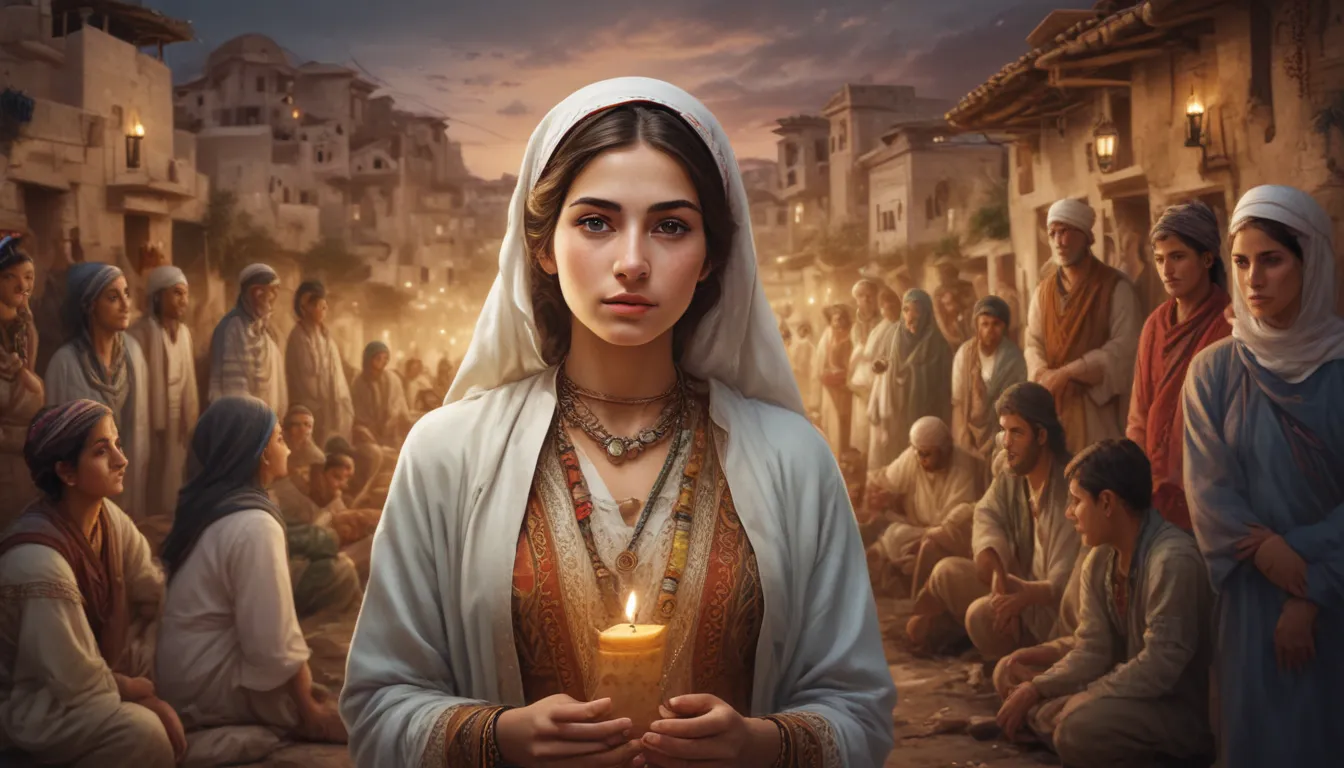The images in our articles may not match the content exactly. They are used to grab your attention, not to show the exact details in the text. The images complement the text but do not replace it.
Welcome to the rich and colorful world of the Yezidi community, also known as Yazidis. Nestled in the historical sands of Mesopotamia, the Yezidis are a unique ethno-religious group with a heritage that stretches back thousands of years. Their beliefs, a blend of ancient pagan traditions, Zoroastrianism, and Islam, set them apart in the tapestry of the world’s religious landscape. Despite facing adversity and persecution, the Yezidis have stood firm in upholding their traditions, rituals, and culture.
Exploring the Roots of the Yezidi Religion
The Yezidi religion stands as one of the oldest monotheistic faiths, steeped in ancient origins that offer a glimpse into a bygone era. Central to their beliefs is the worship of the peacock angel, Melek Taus, a celestial figure that holds a pivotal role in their religious narratives.
Persecution and Resilience: A Yezidi Saga
Throughout history, the Yezidi community has faced persecution due to their unconventional beliefs and practices. This adversity has only strengthened their resolve to maintain their traditions, foster a strong community bond, and preserve their cultural heritage.
Unveiling the Sacred Texts: The Kitab al-Jilwa
At the heart of Yezidi religious teachings lies the Kitab al-Jilwa, their primary holy book. This sacred text serves as a repository of their religious texts, guiding believers on their spiritual journey.
Oral Tradition: A Legacy Passed Down Through Generations
Yezidis have long relied on the oral transmission of their teachings and stories to preserve their cultural heritage and religious practices. This rich tradition ensures that their beliefs remain alive through the spoken word.
The Cycle of Reincarnation in Yezidi Beliefs
Central to Yezidi faith is the belief in reincarnation, where individuals undergo multiple life cycles to achieve spiritual purity. This cyclical journey shapes their worldview and moral compass.
The Unique Yezidi Calendar
The Yezidi calendar blends solar and lunar elements, reflecting the intricate spiritual and cultural practices that define their religious observances.
Community and Unity: Pillars of Yezidi Society
Yezidi communities are characterized by their tight-knit bonds and unwavering support for one another. Unity is paramount in upholding their traditions and customs.
Journeys to Sacred Sites: The Pilgrimage Experience
Lalish, the holiest site for Yezidis, beckons believers on pilgrimages to connect with their spirituality and strengthen their faith.
Cultural Resilience in the Face of Adversity
Despite challenges and persecution, Yezidis have managed to preserve their unique cultural practices and traditions, showcasing their resilience and dedication.
Purity and Rituals: Cornerstones of Yezidi Religion
Cleansing rituals and acts of purity play a significant role in Yezidi religious practices, emphasizing the purification of body and soul.
Hierarchical Structure: The Baba Sheikh and Yezidi Leadership
The Yezidi religious hierarchy is led by the esteemed Baba Sheikh, who provides guidance and leadership to the community.
Celebrating Heritage: The Ezidikhan Festival
Ezidikhan stands as a cornerstone festival for Yezidis, a vibrant celebration of their cultural heritage and religious traditions.
Diaspora Communities: Nurturing Yezidi Culture Worldwide
Yezidi migration has led to the formation of diaspora communities around the globe, serving as bastions for preserving their cultural identity and religious practices.
Diving Deeper: The Rich Tapestry of Yezidi Beliefs
The Yezidi community’s religious beliefs offer a captivating journey into a world brimming with ancient wisdom and cultural richness. Their reverence for the enigmatic Peacock Angel, Melek Taus, and the cosmic duality of good and evil form the foundation of their faith.
Conclusion: A Resilient Legacy
The Yezidi community’s enduring commitment to their religion and heritage shines through in their tenacity and unity. Despite facing trials and tribulations, they stand tall, unwavering in their dedication to preserving their beliefs and customs.
FAQs: Unveiling the Mysteries of Yezidi Culture
-
What is the Yezidi religion?
The Yezidi religion is an ancient faith originating in Mesopotamia, characterized by monotheistic beliefs and the worship of the Peacock Angel, Melek Taus. -
Who are the Yezidis?
Yezidis are an ethno-religious group primarily located in the Kurdistan region of Iraq, with a unique language, culture, and religious practices. -
What are the sacred texts of the Yezidis?
The Kitab al-Jilwa, also known as the Book of Revelation, is a key sacred text in Yezidi religious teachings. -
How do Yezidis view the Peacock Angel?
Yezidis revere Melek Taus, the Peacock Angel, as a benevolent deity and guardian of the world. -
Do Yezidis believe in reincarnation?
Yes, Yezidis believe in the concept of reincarnation, where the soul undergoes multiple life cycles for spiritual purification. -
How do Yezidis observe their religious festivals?
Yezidis celebrate various religious festivals throughout the year, such as New Year’s Day (Jamayi) and the Feast of Sacrifice (Eid al-Adha). -
Can individuals convert to the Yezidi religion?
While Yezidi religion is traditionally passed down through generations, there have been instances of individuals converting to the faith.
The journey into the world of the Yezidi community unveils a tapestry woven with ancient traditions, cultural resilience, and steadfast faith. As we delve deeper into the intricacies of their beliefs and practices, we bear witness to a community that stands as a testament to the diversity and vibrancy of religious traditions worldwide.






